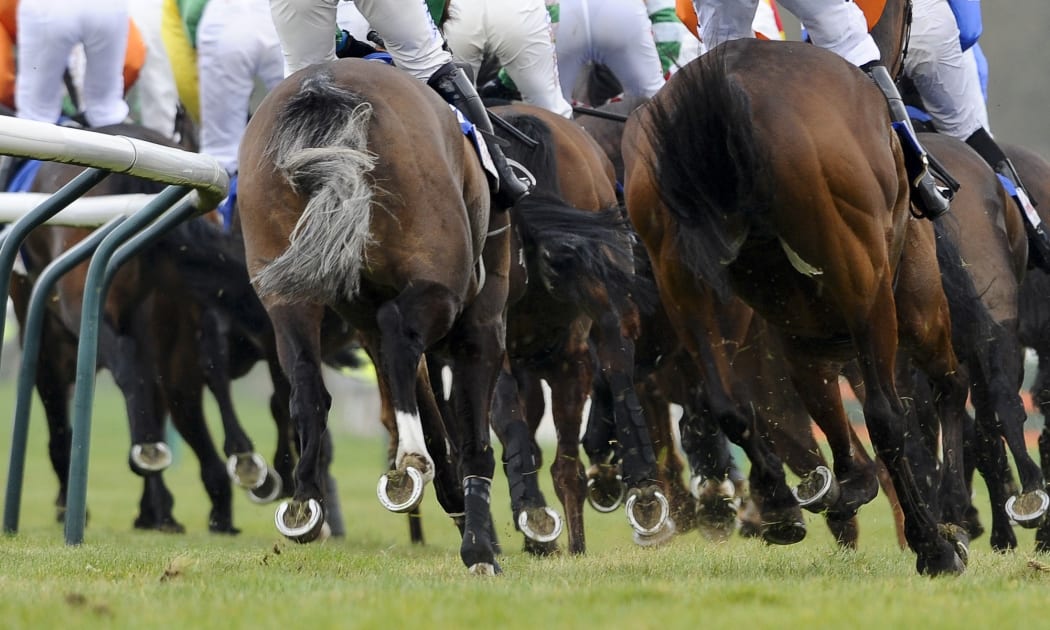New Zealand racing needs to leverage Australia's gambling culture to escape the money hole our parochialism has dug, racing broadcaster Sheldon Murtha says.

Photo: Photosport
Australian racing expert John Messara released an independent report on the state of the racing industry in Aotearoa last week.
It found that although New Zealand has a rich tradition of horseracing, and produces high-quality horses and racers, but the local industry is "in a state of serious malaise".
Although the industry contributes $1.633 billion to the New Zealand economy and generates 10,000 full-time equivalent jobs, the report found trainers and owners face a collective deficit of 153.7 million, with just a 22.9 percent return, compared to the NSW return of 48.1 percent.
Among other things, Mr Messara has recommended halving the number of tracks in New Zealand.
Racing broadcaster Sheldon Murtha tells Sunday Morning's Wallace Chapman the industry has had its head in the sand.
"The parochialism of all of those clubs and the enthusiasts and the volunteers that run those sort of community things that are race meetings, has provided a headspace where we'll carry on the way we've been carrying on and we'll be okay.
"In this day and age in the big bad world of global racing - and I suppose now it's based around the gambling product - it's not efficient for New Zealand to run a club or a racetrack every half an hour."
Read more about the Messara report and community backlash:
Indeed, the Messara report noted that reports going back to 1965 had found there were too many tracks in New Zealand.
Sheldon says it is now too late for the industry to continue to ignore it.
"It isn't too late to make the decisions but it's too late to sort of do what the racing industry generally has done in the past.
"As you know, you can't drive around New Zealand much without running into a racetrack every half an hour, 20 minutes, it was probably the worst scenario back in the day.
"New Zealand is basically too small in the big global world of racing now to accommodate so many tracks and so many facilities for a population - when you're talking about gambling numbers there's about 3.8 million that can bet on the horses."
He says he can understand why some of the rural tracks might be worried, and frustrated.
"I generally think that racing in New Zealand racing is a rural sport and those country meetings even though they only happen once or twice a year … they attract masses of holiday makers, who go to the Kamara races or the Central Otago holiday types, we're talking about 8000, 10,000, 15,000 people turning up there in the middle of summer.
"I can see why a club like Central Otago, who have somewhere like 8000 or 10,000 people every first week in January would feel 'we're doing a great job and we're gonna get the track closed on us'.
"The problem is that I suppose they've had the opportunity in some of those areas - take Southland, take the West Coast - to actually get together amongst themselves to say 'look, we've got seven tracks, or five tracks in this area, we only actually need two."
He says the same applies to big-city areas, and the report's idea is that by closing racetracks, the ones that actually get used more often can be used even more often, and the money from selling the tracks can be pumped back into fewer venues to upgrade their facilities.
He says New Zealand simply can't support the number of racetracks it has, and in terms of funding needs to look to Australia's gambling culture.

New Zealand's racing industry needs to tap into international betting markets, partly because Kiwis do not have a culture of heavy betting, Mr Murtha says. Photo: 123rf
"We provide the excellence in Australian racing, our great horses have been winning Australian racing forever, the leading trainer in Australia's a Kiwi, the ones right behind him are all Kiwis, the best jockeys in Australia are Kiwis. We do racing really well, Australians do gambling really well.
"We love racing [but] we have a flutter, we don't punt. Australians, their culture is to punt on anything and everything and the figures on Australian racing reflect that."
He says the money and technology that would be required to keep the New Zealand gambling industry afloat on its own is simply too much.
"The expenditure that we will have to do to upkeep the TAB to accommodate our - potentially, say, million gamblers of 18 years and over - we'll never be able to sustain that on an economic level.
"It's a really expensive hobby, so the report is there, and needs to be adopted - I would say at least 90 percent of it - for the people who want to get passionate about it and sustain racing as part of New Zealand's culture, which it has been for more than 100 years."

